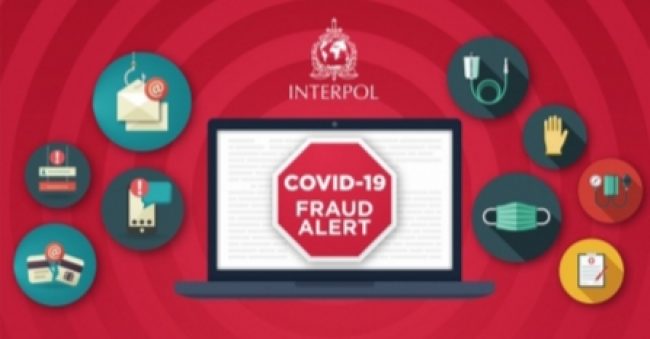

The International Police (INTERPOL) has uncovered a coordinated multinational face masks’ supply fraud worth €1.5 million, connecting suspected fraudsters in Europe and Nigeria.
In a statement placed on its website yesterday, INTERPOL said that the suspected fraudsters capitalised on the global scarcity of medical supplies following the coronavirus pandemic to defraud their victims, adding that the scheme involved the use of compromised emails, advance payment fraud, and money laundering.
They used a compromised email address linked to a legitimate company in Spain selling face masks and a fake website; even as the company originally claimed to have 10 million masks but could not deliver them.
Read Also: Interpol Rescues Nigerian Girls, Others From Sex Trafficking In Mali
The statement added that it later referred the buyer to a dealer in Ireland, where the Irish dealer also promised to put the buyer in touch with a different supplier in The Netherlands.
However, just before the order was to be delivered, the buyers were told that the funds had not been received; the alleged fraudster then asked that an emergency transfer of 880,000 Euro be made to the suppliers in The Netherlands to secure the merchandise.
The fund was sent but the buyers soon realised that they have been duped and immediately contacted their bank in Germany, which in turn contacted INTERPOL’s financial crimes unit.
The international police, with other sister agencies across the world mounted chase to retrieve the money and finally traced part of it to the United Kingdom (UK), through an account destined for Nigeria.
Part of the statement read that “banks, financial intelligence units and judicial authorities, as well as partner organisations Europol and EUROJUST, joined INTERPOL in the chase.
“INTERPOL contacted its National Central Bureau in Dublin as well as the Irish bank. Prompt intervention by the Garda National Economic Crime Bureau allowed them to freeze the €1.5 million in the account and identify the Irish company involved.
“The Dutch Fiscal Information and Investigation Service quickly tracked down the €880,000 which had been transferred from the German company.
“Nearly €500,000 of those funds had already been sent to the UK, all of which was destined for an account in Nigeria,” it said.





















